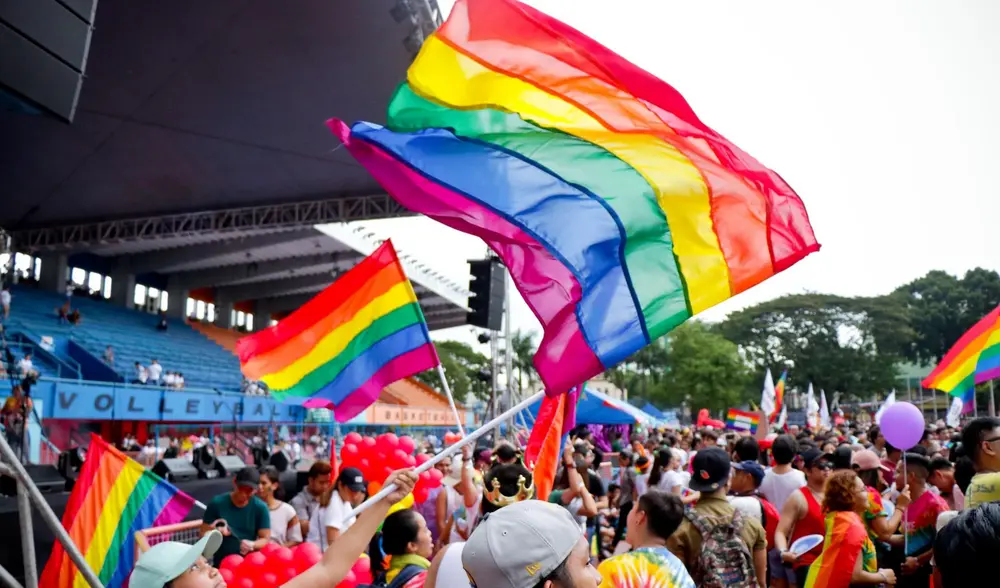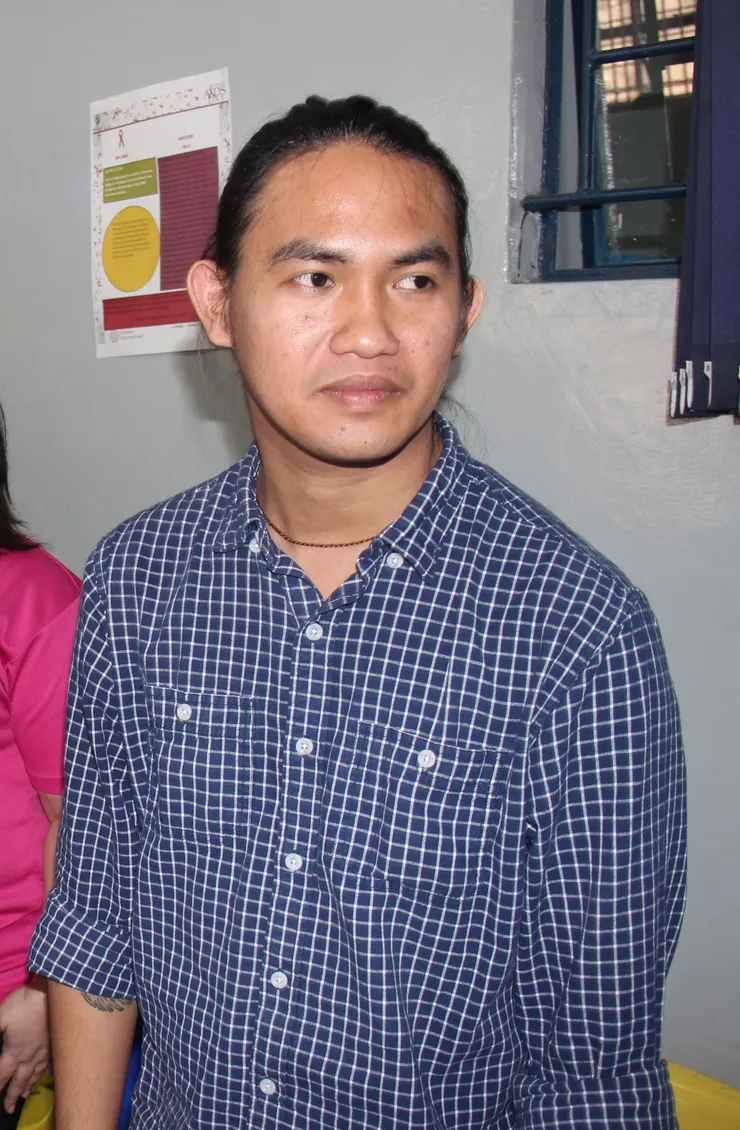The Long-Overdue Philippine LGBTQ Anti-Discrimination Law

Handcuffed, dragged into a security room, and shamed publicly before being illegally detained – Gretchen Custodio Diez, a Filipino transgender woman, had to go through all these after trying to use the female restroom in a Philippine shopping mall in August 2019.
The incident enraged the Filipino lesbian, gay, bisexual, transgender, and queer (LGBTQ) community and triggered a public outcry among allies and supporters. Diez quickly became an overnight face and spokesperson of the community. She turned to the media to air her side of the story and call for the acknowledgment and acceptance of LGBTQ rights.
Diez’s experience, among many others, intensified the dire need for the elusive national legislation that will legally protect the LGBTQ community from any forms of discrimination. But up to now, the end of the road seems to be out of sight.
The Road to an Anti-Discrimination Law
The path towards the passage of a national anti-discrimination law in the Philippines has so far been winding and arduous. It dates back to the 11th Congress in 2000, when the late and former Senator Miriam Defensor-Santiago and Representative Etta Rosales filed versions of the bill in the Senate and House of Representatives, respectively. Some senators and representatives refiled similar bills throughout the 12th to 16th Congresses that spanned three presidents but to no avail. For a bill to be considered for transmittal to the other house and voted upon for action, it needs to pass three readings. Most of the bills didn’t even reach the second reading.
The LGBTQ community saw a glimmer of hope when the current President Rodrigo Roa Duterte assumed office in 2016. He openly declared that homosexual people are children of God. That same year, the Philippines elected Geraldine Roman, the first openly transgender woman legislator in the House of Representatives.
The House of Representatives made a historic move during the 17th Congress in 2017. With 197 affirmative to 0 nay votes, it approved on third and final reading the House Bill 4982 or the SOGIE Equality Act. This was the first time that the bill was transmitted to the Senate for action. However, it did not progress mainly because of sustained opposition from the conservative members of the Senate that has the majority of seats.
The bill was also groundbreaking because it included gender expression as part of the protected classes. Previously proposed bills only encompassed sexual orientation and gender identity.
During the 18th Congress in 2020, Senator Risa Hontiveros filed the Senate Bill 1934 or the Sexual Orientation, Gender Identity, Gender Expression, Sex Characteristics- SOGIESC-based Anti-Discrimination Act, an offshoot of the previously proposed bills and the most current version to date.
Pertinent provisions of the bill include, but are not limited to, prohibiting stigma in different media, discrimination in workplaces, and other activities such as hiring, promotion and dismissal. It also bans discrimination in the access or use of public and private establishments based on SOGIESC. The bill details as well the sanctions and fines for whoever, individuals and/or groups, violates any of its provisions. More importantly, it provides a mechanism for relevant stakeholders on how to approach incidents of discrimination and violence on the basis of SOGIESC.
However, incumbent Senate President Vicente Sotto III previously said there is no chance that the bill will pass, unless it is transformed to focus on all citizens and not just the LGBTQ community. He falsely believes that the bill gives preferential treatment to the community but it is not the case. Since every person has their own SOGIESC, the bill would guarantee and protect the rights of all people. Other current members of the Senate also remain vocal with their opposition to the passage of the bill. For instance, Senator Manny Pacquiao, who is a boxing world champion and enjoys a consistent high approval rate, once compared individuals who are in a same-sex relationship as mas masahol pa sa hayop (worse than animals).
Most notably, in September 2020, President Duterte pardoned Joseph Scott Pemberton, an American soldier who brutally murdered transgender woman Jennifer Laude six years back. This was a low blow to the LGBTQ community and cast doubts regarding the populist leader’s sincerity in supporting and advocating for them.
Two-Faced Nation
Despite being a predominantly Catholic country, the Philippines has been very tolerant to those who self-identify as gays or lesbians. Before the Spaniards colonized the country in 1521, Filipinos respected and had high regard for gender-nonconforming individuals called Babaylans, spiritual leaders who could be cis male wearing feminine clothing and sometimes having sexual relations with or being married to another cis male. The Philippines is also recognized as the first nation in Asia to organize a Pride-related event, which was the 1994 march to celebrate the Stonewall Riots and to oppose the imposition of the Value Added Tax (VAT) in the country at that time.
A 2019 report by the Pew Research Center reveals that 73% of Filipinos said that homosexuality should be accepted by society. This puts the country in a position ahead of other Asia-Pacific nations like Japan (68%) and at par with some first-world nations like the United State of America (72%) and Italy (75%). Additionally, a national poll in 2019 shows that 55% of Filipinos agree that there should be a law that ensures individuals are protected from any forms of discrimination regardless of their SOGIESC.
However, Filipinos seemingly positive attitude toward homosexuality does not always translate to how LGBTQ community members are treated. Cases of gender-based discrimination and violence are steadily rising. According to Transparent versus Transphobia Worldwide, at least 50 transgender individuals have already been killed in the country since 2009. Furthermore, a 2018 United Nations study reveals that 30% of LGBTQ individuals in the country reported being harassed, bullied, or discriminated against by others while at work because of their SOGIESC.
The Catholic Church plays a vital role in shaping the attitude of Filipinos towards homosexuality and the anti-discrimination bill. The Church’s followers respect and value its pronouncements. While it welcomes all kinds of people, it also continues to vehemently condemn any homosexual activities in the country. A priest from the Church once said that the bill will wreak havoc on the societal norms, values, and culture of the Philippines.
Now or Never
The current government opportunity to pass the anti-discrimination bill has lapsed. However, 19th Congress is scheduled to convene in 2022 with new leadership and hopefully with more LGBTQ rights advocates.
In the meantime, local government units have put the matter into their own hands. At present, 26 out of 1634 cities and municipalities have passed their own versions of anti-discrimination ordinances. The list includes Davao’s ordinance, which was conceptualized by President Duterte when he was still the city’s vice-mayor. The nation’s capital Manila City recently joined the list when its mayor signed the LGBTQ Protection Ordinance in October 2020.
These small yet important wins occur while many schools continue to ban transgender individuals from wearing their preferred pieces of clothing, same-sex couples face difficulties in arranging funeral services for their deceased partners, and some workplaces do not welcome LGBTQ individuals.
With the absence of a national anti-discrimination law, Diez’s fate will continue to haunt the LGBTQ community and the Philippines can never claim to be accepting of its diverse citizens.

About the author
Kevin Clidoro is a gay Filipino. He is currently pursuing his Master in Public Policy at the Willy Brandt School in Germany. He has worked for different not-for-profit organizations dealing with children and youth rights and development, including Children International and Save the Children, mainly as a researcher and facilitator of learning. As an advocate of LGBTQ rights, he hopes for a society where members of the community, young and young at heart, will never have to be apologetic and scared to live the life they deserve because of stigma, discrimination, and violence.
~ The views represented in this blog post do not necessarily represent those of the Brandt School. ~